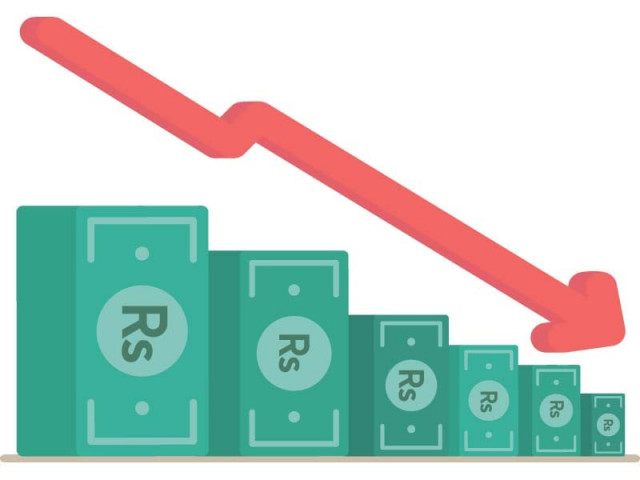Rising cash circulation spurs inflation concerns
Currency within domestic economy has surged to 29% or staggering Rs9.15 trillion

The surging circulation of physical currency within the domestic economy has surged to nearly 29%, equivalent to a staggering Rs9.15 trillion, against the total value of money in the system, which stood at Rs31.59 trillion as of June 2023. This influx of cash has become a significant driver of persistently high inflation rates, thereby compromising economic growth in the nation.
The ballooning circulation of cash in the system not only bolsters the informal economy but also opens the floodgates for potential corruption. Moreover, there’s the looming risk of this readily available cash being employed in illicit hawala-hundi transactions and money laundering.
It’s noteworthy that just a year ago, in June 2022, the cash in circulation constituted around 27.5% of the entire monetary ecosystem, approximately Rs7.57 trillion, against total money in the entire ecosystem at Rs27.60 trillion, as per data from the State Bank of Pakistan (SBP).
Independent economist Ammar Habib Khan, in a December 2022 article, pointed out that “currency in circulation makes up almost 20% of Pakistan’s GDP, increasing from 8%, only about a decade back. Explosive growth of money supply has led to too much cash in the economy chasing too few goods.”
Speaking to The Express Tribune, economist Sana Tawfik from Arif Habib Limited emphasised that the high circulation of cash could either be the cause or consequence of high inflation. She stated that, “In any case, high inflation due to rising cash in the system compromises economic growth.”
The central bank’s issuance of new currency notes to cater to the increasing demand for cash contributes to the growing circulation. This practice is one of the factors perpetuating the high cash flow in the economy.
Both experts call on the government to take decisive steps to regulate this surge in cash circulation, emphasising that failure to do so could lead to stagnated growth in the formal economy, resulting in job losses.
They proposed that encouraging people to become tax filers and potentially demonetising larger currency notes, like the Rs5,000 note, could be effective solutions to curb cash-based transactions.
Furthermore, Pakistan already possesses the necessary infrastructure to support digital financial transactions, making a transition towards a cashless economy feasible.
The example of India’s demonetisation of high-value currency notes was cited. Although it initially posed challenges for the economy and daily wage earners, it ultimately kept inflation and interest rates in check while fostering economic growth.
The Overseas Investors Chamber of Commerce and Industry (OICCI), a foreign investors’ trade body in Pakistan, had also urged the government to phase out the Rs5,000 bank notes a few months ago. Speculation regarding the discontinuation of these notes has persisted, although the central bank has repeatedly dismissed these claims as mere rumours.
The experts, however, caution that demonetisation is not a straightforward solution and could potentially have adverse effects on the entire economy.
Tawfik highlighted that discontinuing the Rs5,000 notes could disproportionately affect daily wage earners with limited incomes, especially when only 21% of the adult population holds bank accounts in the country.
While the discontinuation could encourage more people to deposit money in banks, it raises concerns about the portion of the population without access to banking services. She also pointed out that the government’s decision to eliminate prize bonds of denominations like Rs4,000, Rs25,000, and Rs15,000 was linked to the broader concept of demonetisation.
The discontinuation of these bonds aimed to stem their misuse in cash-based transactions, including the unregistered bonds being traded in the black market to evade taxes, she said.
Ultimately, the consensus among experts is that the government needs to incentivise tax compliance, formalise the economy, and promote financial inclusion to rein in the unchecked cash circulation, curb inflation, and foster sustainable economic growth. Different estimations suggest that Pakistan’s informal economy, parallel to the formal one, is valued at approximately $341.5 billion or nearly Rs86 trillion, further highlighting the urgency of addressing these challenges.
Published in The Express Tribune, August 5th, 2023.
Like Business on Facebook, follow @TribuneBiz on Twitter to stay informed and join in the conversation.



















COMMENTS
Comments are moderated and generally will be posted if they are on-topic and not abusive.
For more information, please see our Comments FAQ